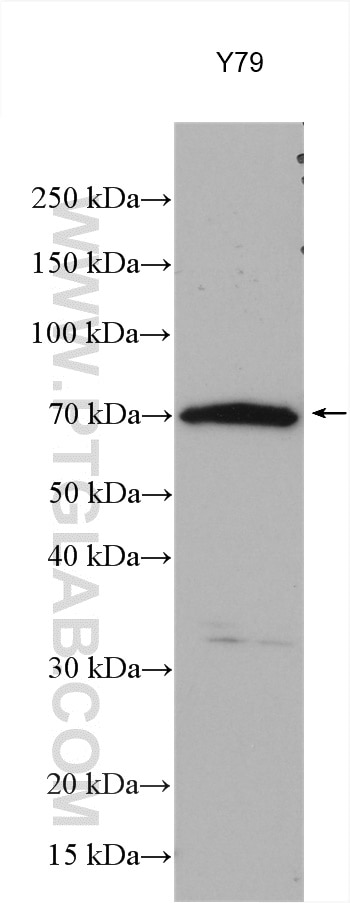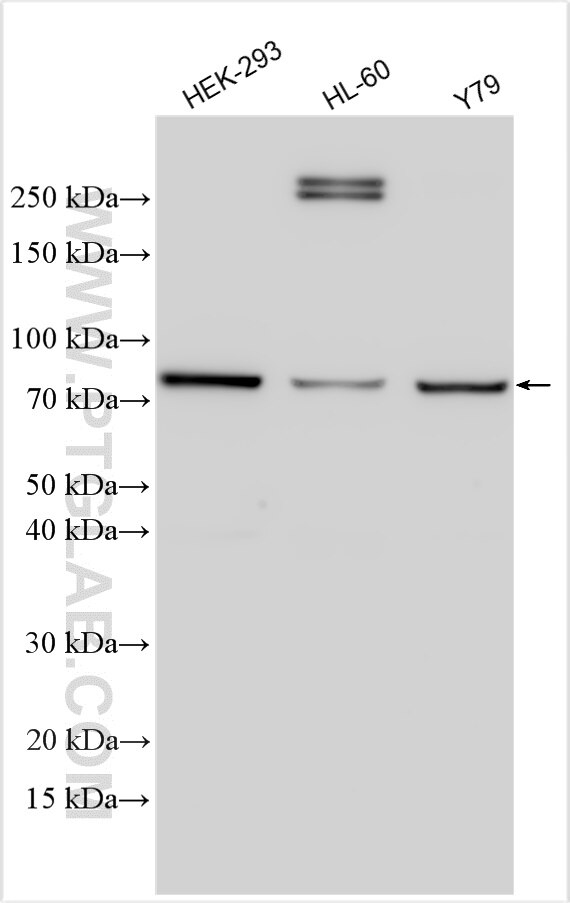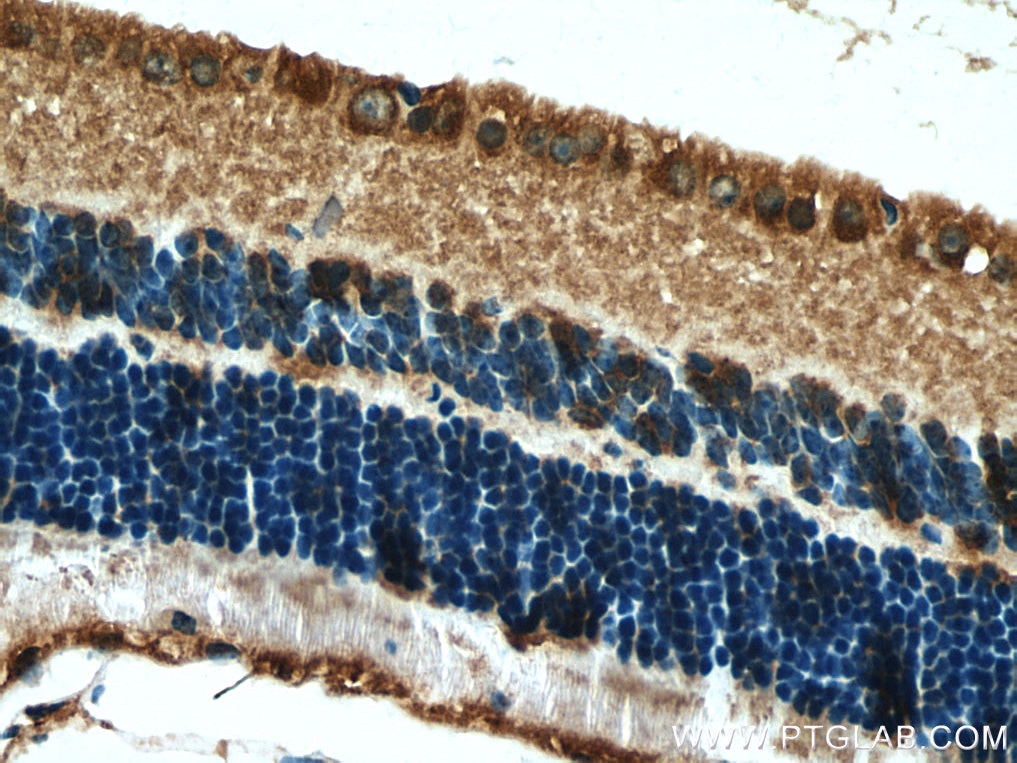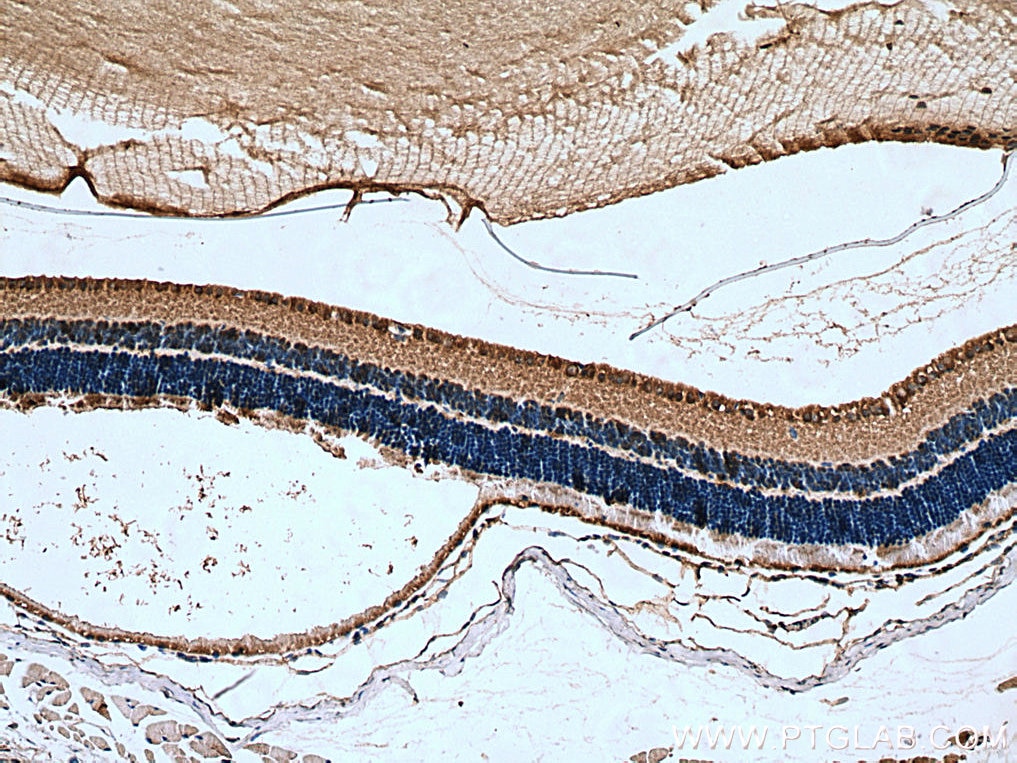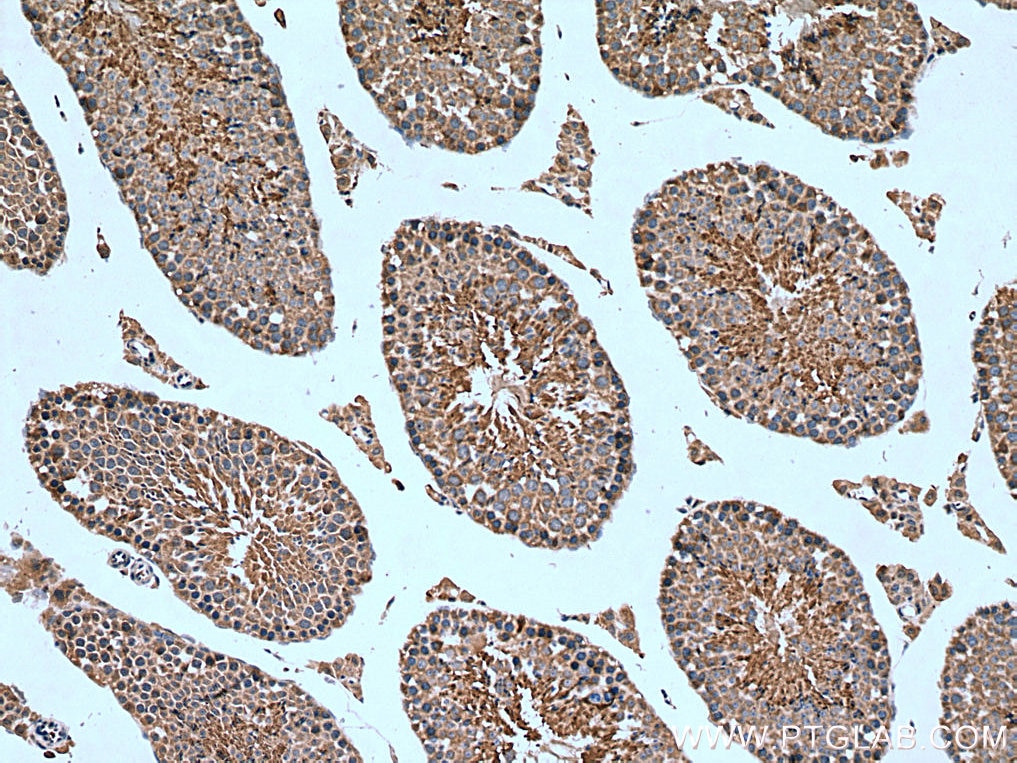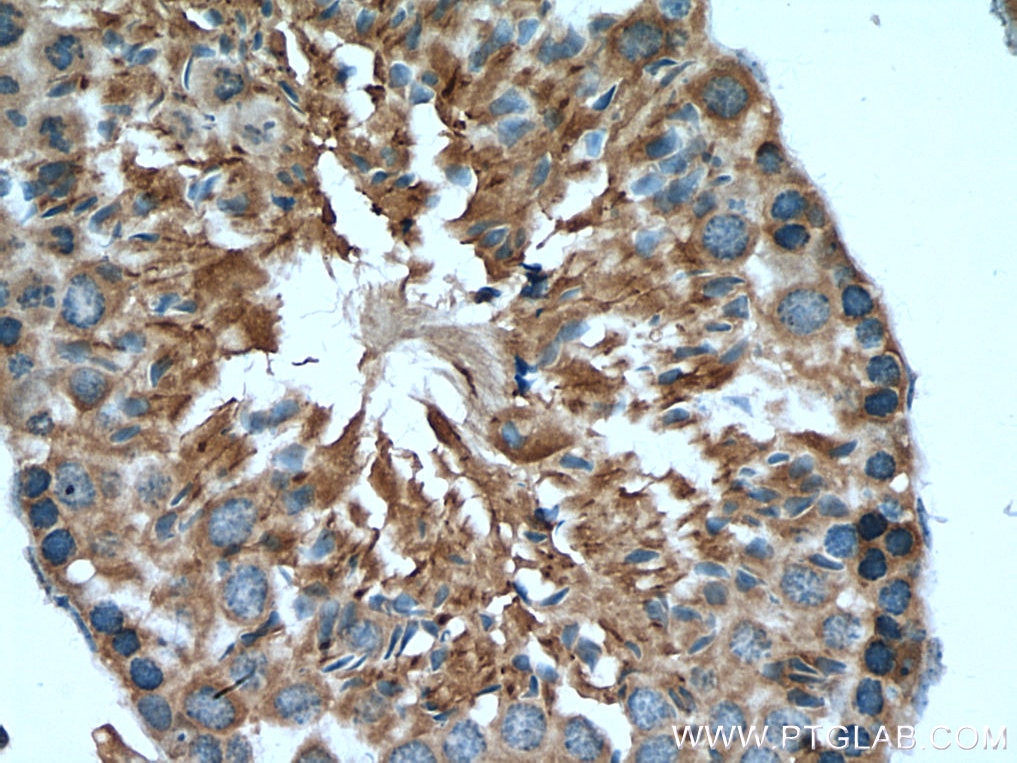- Phare
- Validé par KD/KO
Anticorps Polyclonal de lapin anti-RPGRIP1
RPGRIP1 Polyclonal Antibody for WB, IHC, ELISA
Hôte / Isotype
Lapin / IgG
Réactivité testée
Humain, souris
Applications
WB, IF, IHC, ELISA
Conjugaison
Non conjugué
N° de cat : 13214-1-AP
Synonymes
Galerie de données de validation
Applications testées
| Résultats positifs en WB | cellules Y79, cellules HEK-293, cellules HL-60 |
| Résultats positifs en IHC | tissu oculaire de souris, tissu testiculaire de souris il est suggéré de démasquer l'antigène avec un tampon de TE buffer pH 9.0; (*) À défaut, 'le démasquage de l'antigène peut être 'effectué avec un tampon citrate pH 6,0. |
Dilution recommandée
| Application | Dilution |
|---|---|
| Western Blot (WB) | WB : 1:500-1:1000 |
| Immunohistochimie (IHC) | IHC : 1:50-1:500 |
| It is recommended that this reagent should be titrated in each testing system to obtain optimal results. | |
| Sample-dependent, check data in validation data gallery | |
Applications publiées
| KD/KO | See 1 publications below |
| WB | See 1 publications below |
| IF | See 1 publications below |
Informations sur le produit
13214-1-AP cible RPGRIP1 dans les applications de WB, IF, IHC, ELISA et montre une réactivité avec des échantillons Humain, souris
| Réactivité | Humain, souris |
| Réactivité citée | souris |
| Hôte / Isotype | Lapin / IgG |
| Clonalité | Polyclonal |
| Type | Anticorps |
| Immunogène | RPGRIP1 Protéine recombinante Ag4089 |
| Nom complet | retinitis pigmentosa GTPase regulator interacting protein 1 |
| Masse moléculaire calculée | 147 kDa |
| Poids moléculaire observé | 70 kDa |
| Numéro d’acquisition GenBank | BC039089 |
| Symbole du gène | RPGRIP1 |
| Identification du gène (NCBI) | 57096 |
| Conjugaison | Non conjugué |
| Forme | Liquide |
| Méthode de purification | Purification par affinité contre l'antigène |
| Tampon de stockage | PBS avec azoture de sodium à 0,02 % et glycérol à 50 % pH 7,3 |
| Conditions de stockage | Stocker à -20°C. Stable pendant un an après l'expédition. L'aliquotage n'est pas nécessaire pour le stockage à -20oC Les 20ul contiennent 0,1% de BSA. |
Informations générales
RPGRIP1 is a photoreceptor protein that interacts with retinitis pigmentosa GTPase regulator protein and is a key component of cone and rod photoreceptor cells. The biological functions of RPGRIP1 are complex. Mutations in this gene lead to autosomal recessive congenital blindness. In the eye, it is expressed in amacrine neurons and photoreceptors, and in numerous other tissues, albeit at greatly reduced levels. Moreover, it exists multiple isoforms with species-specific subcellular localization patterns, and the different isoforms perform cell-specific functions. Within photoreceptors, RPGRIP1 localizes predominantly to outer segments (OS) of rods and cones in humans, whereas in bovine eyes, it is found only in rod OS. In contrast, in mice, RPGRIP1 is found primarily in connecting cilia (CC), where it localizes between the ciliary axoneme and the plasma membrane. RPGRIP1 has multiple isoforms with MW 147 kDa, 70-76 kDa, 103 kDa, and 66 kDa.
Protocole
| Product Specific Protocols | |
|---|---|
| WB protocol for RPGRIP1 antibody 13214-1-AP | Download protocol |
| IHC protocol for RPGRIP1 antibody 13214-1-AP | Download protocol |
| Standard Protocols | |
|---|---|
| Click here to view our Standard Protocols |
Publications
| Species | Application | Title |
|---|---|---|
EMBO J Cell type-specific regulation of ciliary transition zone assembly in vertebrates.
|
